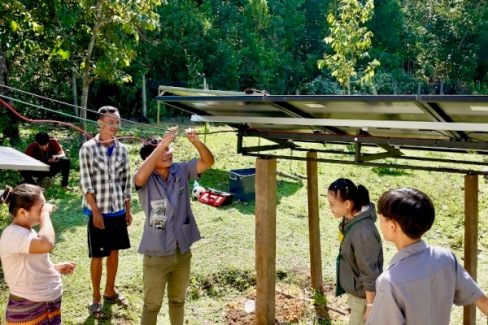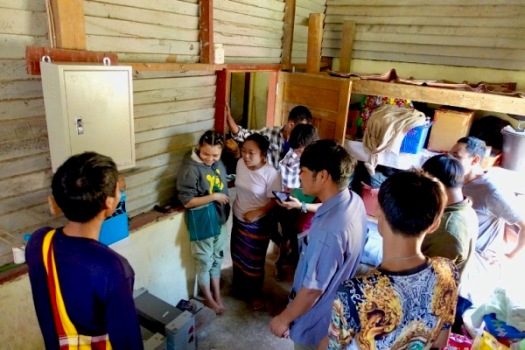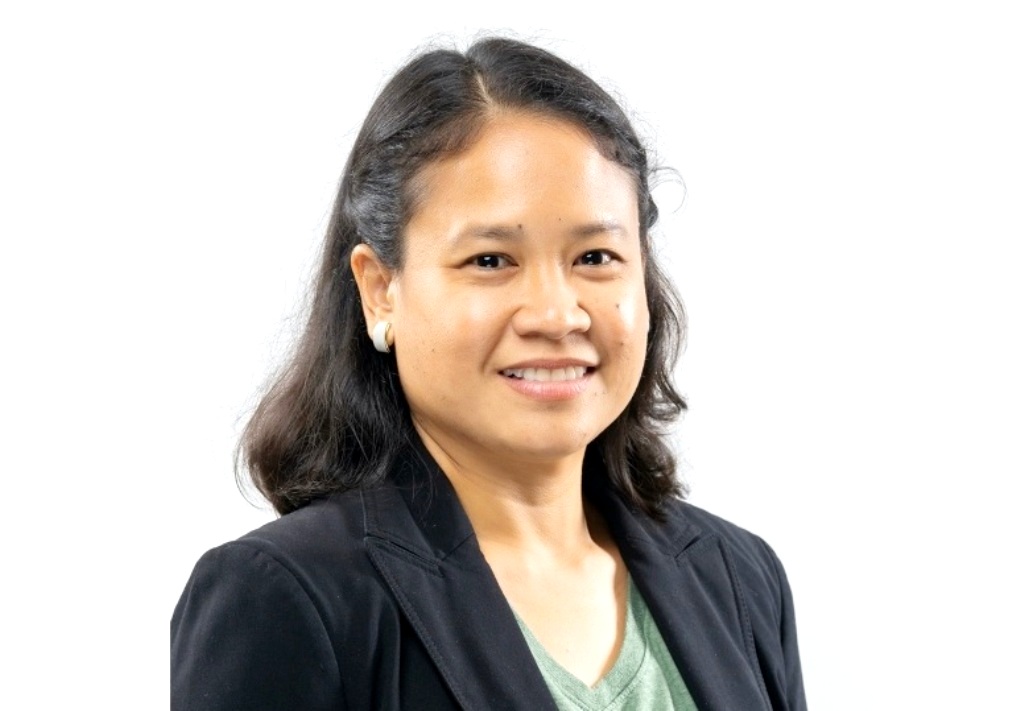The Border Green Energy Team (BGET) has been working along the Thailand/Burma border since 2005 with the mission to utilise renewable energy and sustainable technologies to meet the energy requirements of these areas. Along the line, they also demonstrated how these technologies were integral and economically viable aspects of improving livelihoods. They got BGET registered as a Foundation in Thailand in 2011 after which they started focusing primarily on solar energy.
 Working in border areas with limited resources did not hinder their aspirations in any way and they continued their work with thousands of people living in the region. Over the years, they have touched the lives of ethnic minorities, migrants, refugees, and internally displaced communities on both sides of the border. Their efforts have been recognized by regional as well as international bodies. BGET was the recipient of the coveted funding from AVPN’s APAC Sustainability Seed Fund supported by Google.org. With this funding, they plan to pilot solar mini-grid projects to power childcare centers/schools and rural households in the villages. They will emphasise on productive uses of the systems to increase income of the local villages which would help them pay electricity and cover the maintenance/repair costs.
Working in border areas with limited resources did not hinder their aspirations in any way and they continued their work with thousands of people living in the region. Over the years, they have touched the lives of ethnic minorities, migrants, refugees, and internally displaced communities on both sides of the border. Their efforts have been recognized by regional as well as international bodies. BGET was the recipient of the coveted funding from AVPN’s APAC Sustainability Seed Fund supported by Google.org. With this funding, they plan to pilot solar mini-grid projects to power childcare centers/schools and rural households in the villages. They will emphasise on productive uses of the systems to increase income of the local villages which would help them pay electricity and cover the maintenance/repair costs.
In this exclusive interview with TheCSRUniverse, Salinee Hurley, Director, BGET, discusses the work of their foundation, how they help the communities use their solutions in the most productive ways and their sustainable business model wherein the community bears a part of the cost of the solutions. Salinee holds an MS in Solar Energy Engineering from the University of Massachusetts Lowell and is also the Founder & CEO of SunSawang Company Limited.
Read the full interview here:
Q. We would like to know about the origins of BGET Foundation- who are the founders and what led them to start the organisation?
A. BGET was founded by Mr. Walt Ratterman (solar expert) and Dr. Chris Greacen (micro-hydro expert) in 2005. I joined the team as the Director then. Both co-founders saw the need for renewable energy technologies for the off-grid communities along the Thai-Burmese border. In 2011, I and other team members set up BGET as a Thai-registered foundation and have carried on the work since.
Q. Please tell us about your work- what is it that you do and what kind of impact have you been able to achieve over the years?
A. Before we set up the foundation, we worked with different types of renewable energy including solar, micro-hydro, biogas, solar cooking, ramp pump, and training in these topics. After the foundation was set up, we mainly focused on solar electric systems in the ethnic minority, migrant, refugee, and internally displaced person communities on both sides of the border. We have installed over thousand solar systems for homes, medical clinics, hospitals, schools, child care centers, and training centers.
Q. Why did you specifically choose border areas to work with? Being sensitive regions, do you have any kind of support or involvement of armed forces in your work?
A. We decided to work in the border areas because of the needs of modern energy services. Tak province has the largest off-grid communities in Thailand, similar to Mae Hong Son province which is north of Tak. Also, on the other side of the border, there are many needs for electricity for medical clinics, hospitals, and schools. We do not have any kind of support or involvement of the armed forces. We only work with local civil organizations who support healthcare and education in the areas.
Q. How do you involve communities in the implementation and adaptation process?
A. We do a pre-project survey to identify the communities' needs and verify their willingness to participate in our project. The communities will have to contribute both in-kind and financial means toward the projects.
Q. What were the initial technologies that you started with? How has the gamut of technologies and solutions expanded over the years?
A. We started with several renewable energy technologies as I mentioned above. Later on, we started to focus exclusively on solar electricity systems.
Q. You have been working in this domain for nearly two decades. What are the toughest challenges you faced and how did you overcome them?
A. The most difficult challenge is project and organization sustainability. When we only focus on the fundraising to implement the projects, the renewable energy applications/technologies need to be repaired and maintained over the years. Our organization could not provide the service indefinitely. So, the business model has been implemented in our projects. The local communities have to cover some of the implementation costs depending on how much funding our organization can raise to support the other parts of the costs. In some situations, the communities pay 50% and the other 50% covered by grants. Since the communities pay, they will make sure that the systems will continue working. Part of the costs cover the salaries for local technicians who maintain these systems.
the years. Our organization could not provide the service indefinitely. So, the business model has been implemented in our projects. The local communities have to cover some of the implementation costs depending on how much funding our organization can raise to support the other parts of the costs. In some situations, the communities pay 50% and the other 50% covered by grants. Since the communities pay, they will make sure that the systems will continue working. Part of the costs cover the salaries for local technicians who maintain these systems.
Q. Renewable energy and sustainable technologies are perceived to be expensive. What is your take on the cost and benefits of these solutions, especially in the context of vulnerable and marginalised communities?
A. In some situations, I mentioned in the previous answer that the communities pay some part of the costs. However, in humanitarian settings, we had to fundraise 100% to cover the cost of the projects. But we also work with our partners to do the fundraising.
Q. You recently received funding from AVPN’s Sustainability Seed Fund. How do you intend to utilise this funding in the coming months?
A. For the AVPN Fund, we are exploring the new project. We will use the fund to pilot solar mini-grid projects to power childcare centers/schools and rural households in the villages. We will emphasize on the productive uses of the system to increase income of the local villages, so they can pay for electricity and cover the maintenance/repair costs.
Q. What message would you like to give policy makers regarding climate change? What kind of policy level interventions would you like to see being taken with respect to the geographies that you operate in?
A. We would like the government to have less complicated process to install solar rooftop, so anyone can have their solar systems on their roof.
Q. Would you like to give any suggestions/word of advice to NGOs that are working on-ground with climate-affected communities or in the domain of sustainability?
A. Currently, we consider solar energy as a green and clean energy. However, we are looking at ways to recycle these solar panels when their lifetime is finished. This issue will rise in the next 5-10 years in Thailand because of the solar projects/power plants installed over 10 years ago. We have to think of our current solutions and see if these might become future problems or not and how we can prevent it from happening. We hope that we can set up a PV panel recycling business in the near future.





 Working in border areas with limited resources did not hinder their aspirations in any way and they continued their work with thousands of people living in the region. Over the years, they have touched the lives of ethnic minorities, migrants, refugees, and internally displaced communities on both sides of the border. Their efforts have been recognized by regional as well as international bodies. BGET was the recipient of the coveted funding from AVPN’s APAC Sustainability Seed Fund supported by Google.org. With this funding, they plan to pilot solar mini-grid projects to power childcare centers/schools and rural households in the villages. They will emphasise on productive uses of the systems to increase income of the local villages which would help them pay electricity and cover the maintenance/repair costs.
Working in border areas with limited resources did not hinder their aspirations in any way and they continued their work with thousands of people living in the region. Over the years, they have touched the lives of ethnic minorities, migrants, refugees, and internally displaced communities on both sides of the border. Their efforts have been recognized by regional as well as international bodies. BGET was the recipient of the coveted funding from AVPN’s APAC Sustainability Seed Fund supported by Google.org. With this funding, they plan to pilot solar mini-grid projects to power childcare centers/schools and rural households in the villages. They will emphasise on productive uses of the systems to increase income of the local villages which would help them pay electricity and cover the maintenance/repair costs. the years. Our organization could not provide the service indefinitely. So, the business model has been implemented in our projects. The local communities have to cover some of the implementation costs depending on how much funding our organization can raise to support the other parts of the costs. In some situations, the communities pay 50% and the other 50% covered by grants. Since the communities pay, they will make sure that the systems will continue working. Part of the costs cover the salaries for local technicians who maintain these systems.
the years. Our organization could not provide the service indefinitely. So, the business model has been implemented in our projects. The local communities have to cover some of the implementation costs depending on how much funding our organization can raise to support the other parts of the costs. In some situations, the communities pay 50% and the other 50% covered by grants. Since the communities pay, they will make sure that the systems will continue working. Part of the costs cover the salaries for local technicians who maintain these systems.












.jpg)



